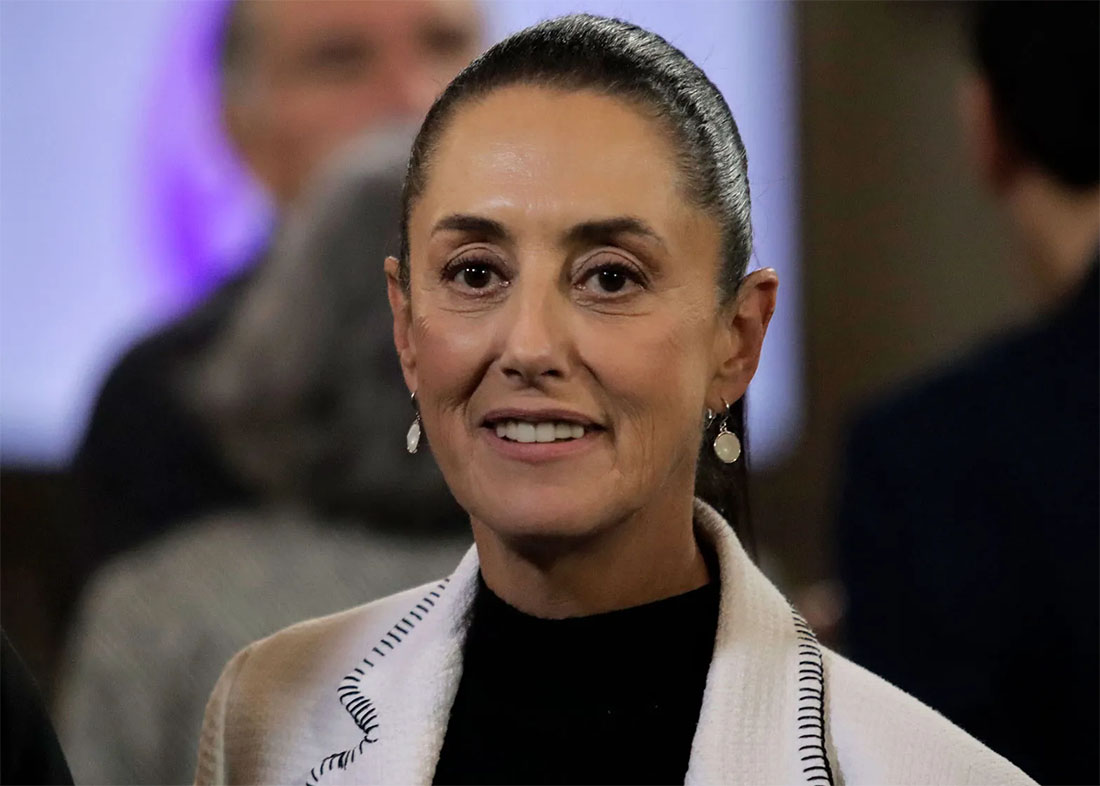
Photo Credit: Getty Images
Mexican President Claudia Sheinbaum has taken a decisive stance against U.S. intervention in Mexico's affairs, vowing to reinforce constitutional protections of the nation's sovereignty. This move follows the United States' recent designation of several Mexican cartels as foreign terrorist organizations—a classification that could, in theory, justify direct U.S. military actions against them on Mexican soil. Sheinbaum made it clear that Mexico will not tolerate any foreign interference, emphasizing the country's unwavering commitment to independence.
During a press conference, Sheinbaum explicitly rejected the possibility of external intervention, stressing that Mexico's sovereignty is non-negotiable. "The people of Mexico, under no circumstances, will accept interventions, interference, or any other act from abroad that is harmful to the integrity, independence, and sovereignty of the nation," she stated. She underscored that her administration is taking steps to ensure Mexico's territorial integrity is protected by law, covering land, water, sea, and airspace.
The tension between the two nations has been exacerbated by revelations that the U.S. has been secretly flying MQ-9 Reaper drones over Mexico to spy on cartels. This covert surveillance effort, which came to light through a CNN report, aligns with former President Donald Trump's broader security agenda, which focused heavily on reinforcing the U.S. southern border. The Mexican government was further unsettled by reports that U.S. spy planes have been operating near the border, prompting Mexico's Defense Minister Ricardo Trevilla to express his concerns, noting that he had not been informed about these flights.
To cement Mexico's legal stance, Sheinbaum is pushing for constitutional reforms that will further solidify the country's independence. She aims to amend Articles 39 and 40 of the constitution, which emphasize Mexico's self-determination, in order to explicitly prohibit any foreign country from conducting investigations or legal actions within Mexican territory without direct approval from the Mexican state.
The president also criticized the U.S. for failing to consult her government before labeling cartels as terrorist organizations. "They can call (cartels) whatever they decide, but with Mexico, it is collaboration and coordination—never subordination, no interference, and even less invasion," she asserted.
Beyond rejecting U.S. involvement in cartel-related issues, Sheinbaum is also introducing a separate reform targeting arms trafficking. The proposed measure will crack down on both Mexican nationals and foreigners involved in the illegal distribution of weapons within Mexico. The U.S. has long been a major supplier of illegal firearms to Mexico, with studies showing that 70% to 90% of guns recovered from Mexican crime scenes were trafficked from the U.S.
Sheinbaum's reforms highlight a growing resistance to what many Mexican leaders see as U.S. overreach. While Mexico acknowledges the severity of cartel violence, Sheinbaum insists that the solution must be found through bilateral cooperation—not through foreign military interventions. As tensions between the U.S. and Mexico continue to simmer, Sheinbaum's steadfast defense of sovereignty marks a pivotal moment in the diplomatic relations between the two neighboring nations.
















